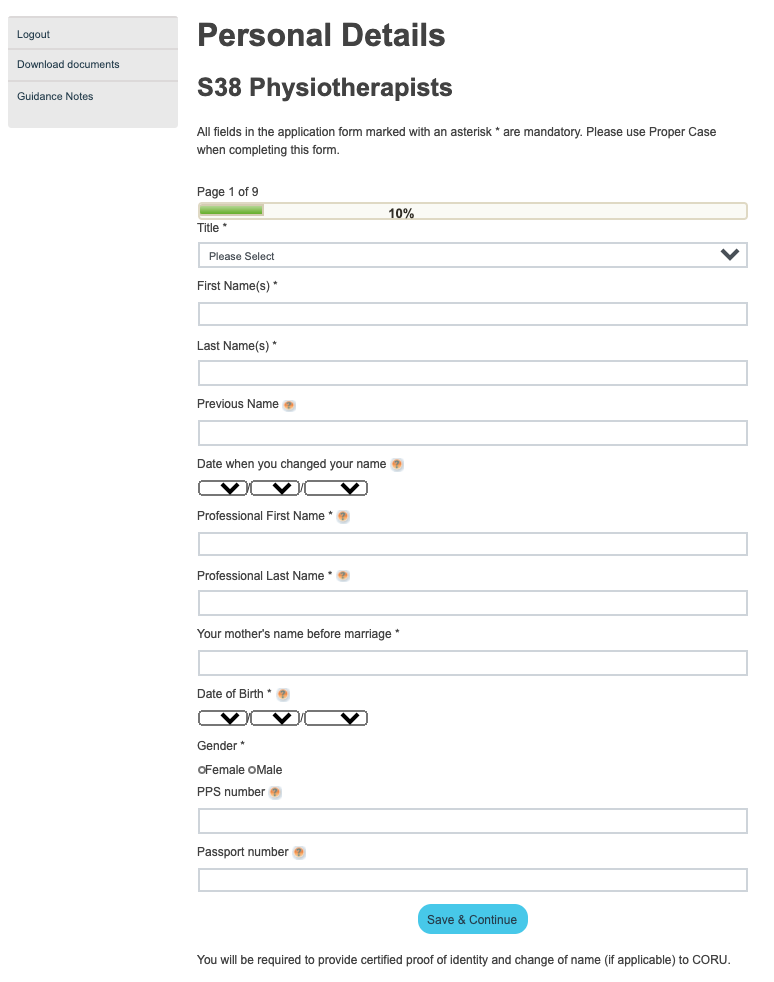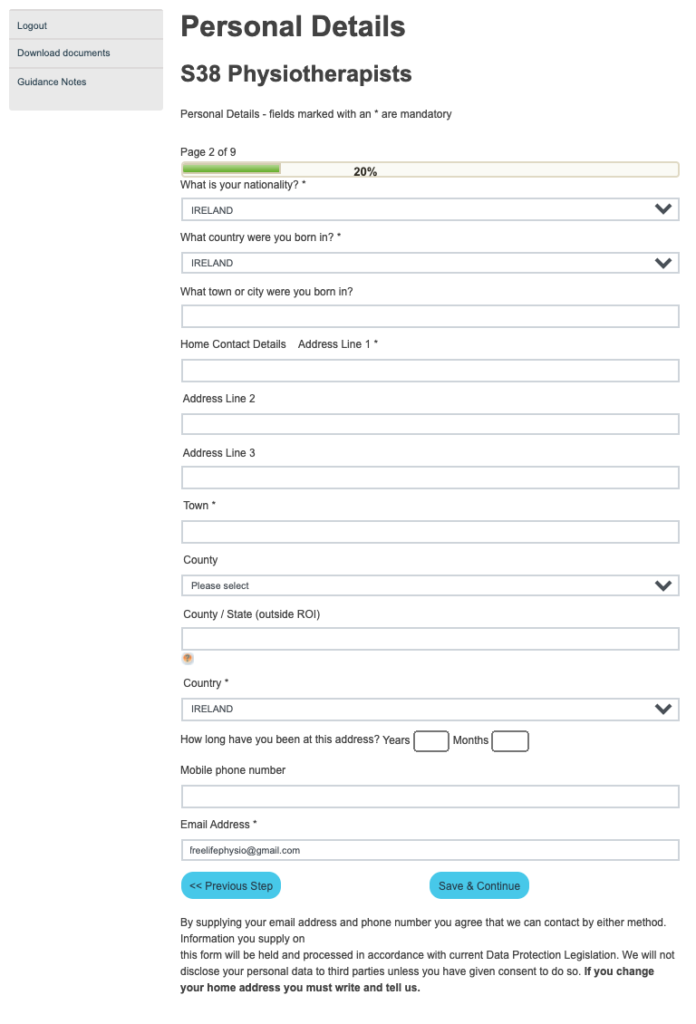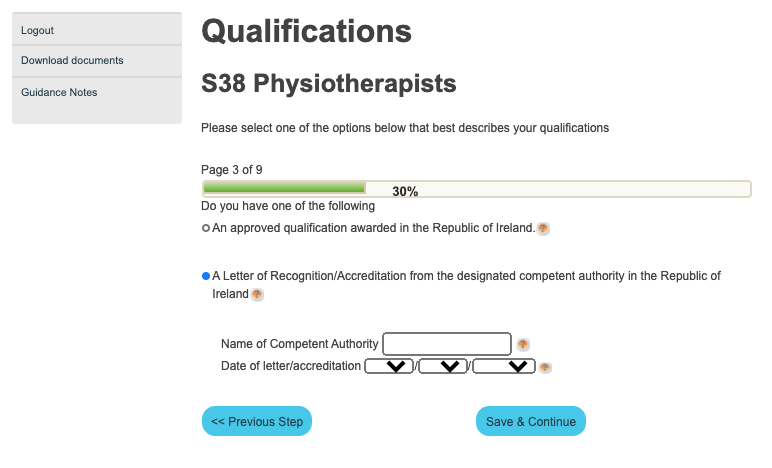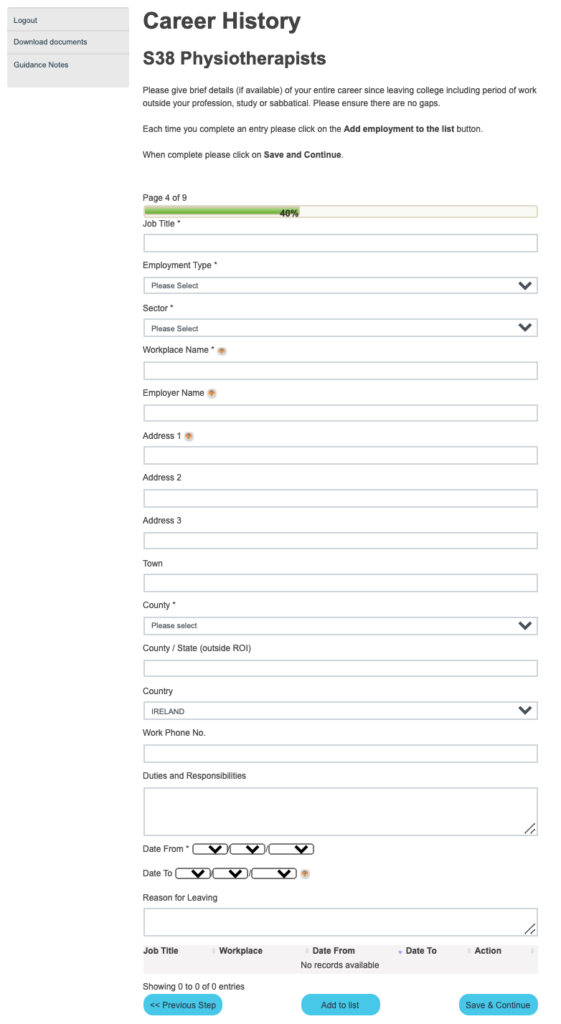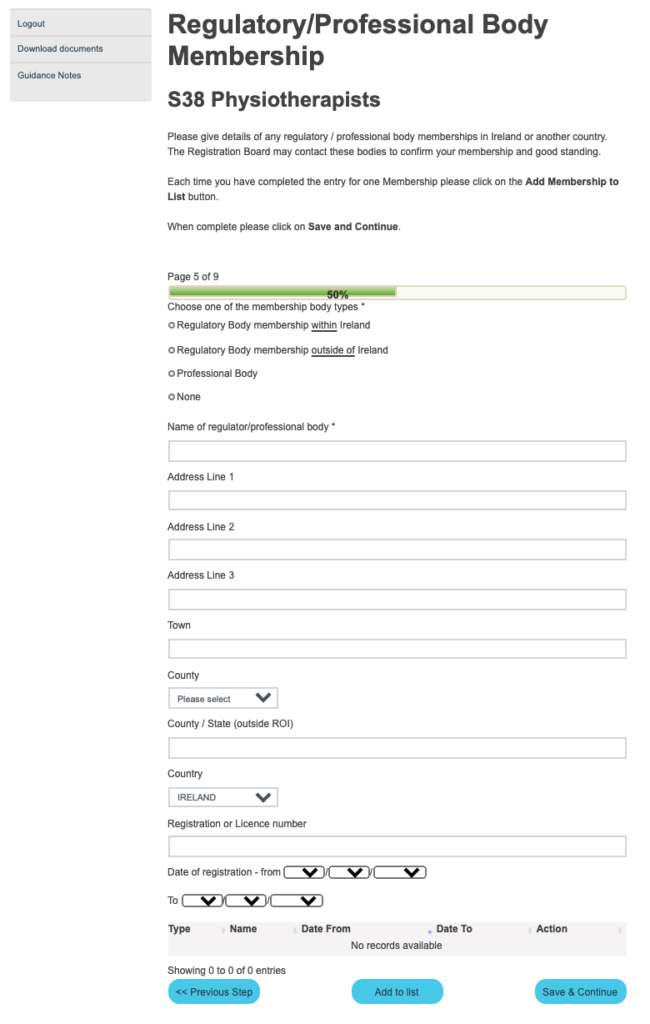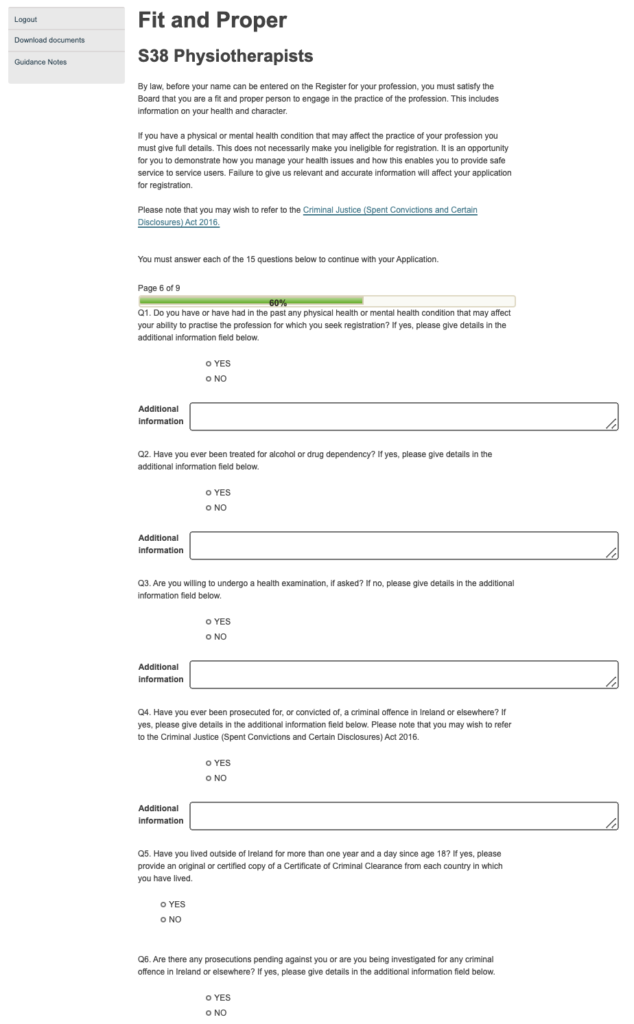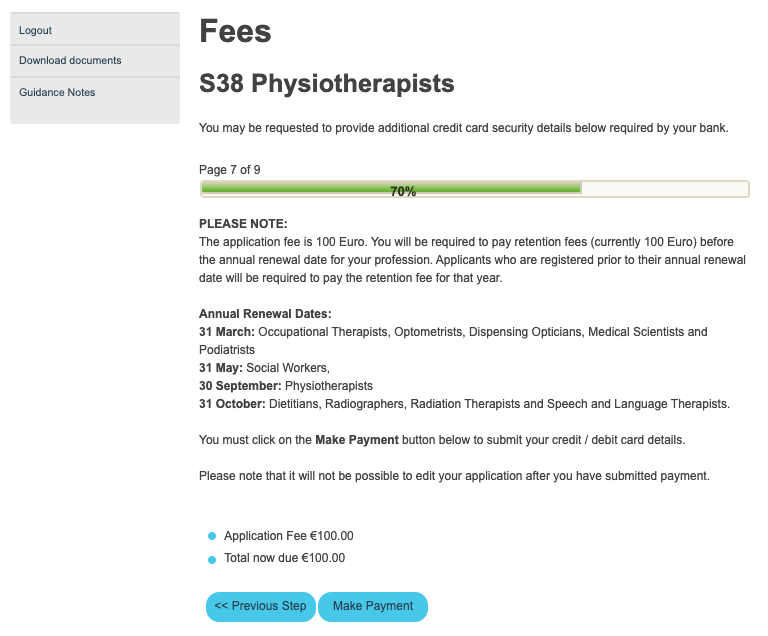My first tip before commencing this step is to head to the CORU website, follow the links to the “Apply for Registration” page and have a thorough read of the Guidance Notes. As much as I try my best to help you, this is where you will find all the most up to date information on the process.
Based on the fact that you’re reading this page let’s assume you’re applying under Section 38, that is you’re commencing practice of your profession in Ireland (rather than someone who is already practicing in Ireland and applying under Section 91). You’ll go through a few stages, and here is how I recommend you tackle each of them:
1. Read the Guidance Notes
It’s important to check that you meet all the eligibility criteria and will be able to provide all the information they are asking for before you invest your time, money and energy into this process.
2. Gather all the necessary documents
The main reason being that you have a deadline of 30 days from submission of your application to provide all the the required supporting documents. If you’re trying to arrange a police check or a Notary Public to provide certified copies last minute then you’ll place yourself under unnecessary pressure. You’ll get a check list of everything you need to provide, but just so you’ve got it all in advance here’s a rundown:
- Statutory Declaration: downloaded from the CORU website, witnessed and signed by the right person
(* I’ll interrupt things here for quick Public Service Announcement on Certified Copies: Please ensure you get the appropriate person to certify your documents. CORU will reject your application if it isn’t signed by a Practicing Solicitor/Notary Public/Commissioner for Oaths/Peace Commissioner with all the right details. A Justice of the Peace, for example, is not adequate for this process, nor is a police officer.)
- eVetting Invitation Form: basically a criminal history/working with children check
- Proof of address document for the eVetting form (e.g. utility bill or bank statement) – no need to certify this
- Certified copy of your proof of identity document (current Passport or Irish Driver’s Licence) for the eVetting Form
- Certified copy of your proof of identity document (current Passport or Irish Driver’s Licence) for the online CORU application
- Certified copy of evidence of change of name (if applicable)
- Certified copy of your Qualification/University Certificate
- Your CORU Recognition Letter
- Certified copies of Criminal History Checks for EVERY country you have lived in for more than 1 year since the age of 18
- 2 passport photos with name and date on the back
- Proof of English Language Competency: evidence may be in the form of a letter or note on your University Transcript stating that your qualification was completed in English, or a letter from an employer stating that you have practiced in an English speaking country for at least 2 years or a language proficiency test
In usual times all of these documents would be posted to CORU, but I was required to provide them electronically via email due to office closures during COVID. This meant for example I sent one electronic copy of a passport photo. Please just be guided by your Registration Officer when you apply.
3. Start the Online Application
Now that you’re somewhat prepared (who knows if they’ll throw you any other curve balls!), head to the CORU website and follow the links to Apply for Registration. Select your profession, enter your email address, and your login details will be emailed to you to create your online account:

